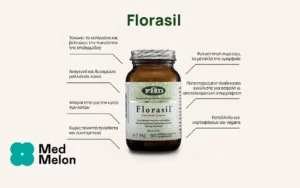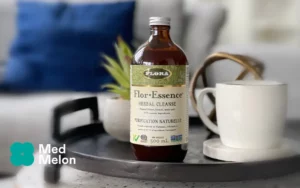Scientific Names of Wild Thyme: Thymus pulegioides ‘Archers Gold’; T. pulegioides ‘Bertram Anderson’; T. pulegioides ‘Aureus’ and T. pulegioides ‘Golden Dwarf’; T. pulegioides ‘Elliott’s Gold’ and T. pulegioides ‘Lemon King’. [Fam. Lamiaceae]
Forms:
Aqueous extract of wild thyme leaves; pure essential oil of wild thyme leaves
Traditional Usage:
– Anti-aging
– Antibacterial
– Antifungal
– Antioxidant
– Antiseptic
– Breathing Disorders
– Bronchitis
– Carminative
– Catarrh (upper respiratory mucous)
– Cellular Regeneration
– Cleansing
– Cough
– Cold
– Cramps (Digestive)
– Deodorant
– Detoxification
– Digestive Disorders
– Disinfectant (externally)
– Diuretic
– Expectorant
– Flatulence
– Flu
– Gastrointestinal Disorders
– Lowering Cholesterol
– Mouthwash
– Nervous Disorders
– Poultice
– Spasms (externally)
– Stomachaches
– Urinary Disinfectant
– Vascular Disorders
– Vermifuge
– Whooping Cough
Overview:
Wild thyme, T. pulegioides [Fam. Lamiaceae], is a perennial native to the Mediterranean. Wild thyme, many varieties of which are also called lemon thyme, contains the same active ingredients as common thyme and can be used interchangeably. Thyme was traditionally used as a medicine for treating symptoms of bronchitis, whooping cough and catarrh (mucous) of the upper respiratory tract. Thyme was also grown in monastery gardens in France, Spain and Italy during the Middle Ages for use as a cough remedy, digestive aid and treatment for intestinal parasites. The German Commission E also lists common thyme leaves and oil for treating poor digestion. In European folk tradition, thyme leaf tea was also used for nervous disorders. Experimentally, oil of thyme lowers arterial pressure, increases heart rhythms, respiratory volume, lowers blood pressure and alleviates toothaches. The oil is strongly antibacterial and antimicrobial, being 25 times stronger than phenol, but, in contrast, it is less injurious to the skin. Pure thyme oil is often used as a natural preservative for medicinal and culinary oil blends, especially for encapsulated fish oil blends because of its antiseptic and antioxidant properties. New studies on a monoterpene found in thyme oil called limonene (found more abundantly in citrus rinds) show that it very effectively prevents individuals from developing abnormal growths on their skin (when taken internally). Limonene also has demonstrated prevention efficacy in preclinical models of breast and colon abnormal growths. Limonene has chemopreventive activity against rodent mammary, skin, liver, lung and upper stomach abnormal growths. Limonene also has chemotherapeutic activity against rodent mammary and pancreatic abnormal growths and is under evaluation in Phase I clinical trials with humans. Another monoterpene from thyme oil, geraniol, has in vivo activity against abnormal white blood cells. Monoterpenes block cholesterol production within the body, which prevents excess estrogen formation.
Active Ingredients:
Wild thyme leaves and oil contain: 1-2.5% essential oil with thymol (30-70%) and carvacrol (3-15%) as the main components. Other monoterpenes include limonene, p-cymene, gamma terpinene and geraniol. There are also many tannins, flavonoids and triterpenes in the leaves.
Suggested Amount:
Wild thyme leaves can be taken as a tea with the recommended dosage of a cold or moderately hot cup of tea taken several times a day or as required. An infusion is made using 1.5-2g (one teaspoonful) of the coarsely cut or powdered leaves. Boiling water (ca. 150ml) is poured over this and extracted for 10 minutes. For poultices, a 5% infusion is recommended. As a fluid extract or tincture, the dosage should correspond to not less than 0.03% phenols calculated as thymol (1.5-2g).
Drug Interactions:
None known.
Contraindications:
It is safe to use thyme as a seasoning during pregnancy, but strong medicinal doses should be avoided if there is any possibility that you are pregnant.
Side Effects:
None known.
References:
Crowell PL. 1999. Prevention and therapy of cancer by dietary monoterpenes. J Nutr. 1999 Mar; 129(3): 775S-778S. Review.
Duke, J. 1997: The Green Pharmacy, The Ultimate Compendium of Natural Remedies from the World’s Foremost Authority on Healing and Herbs. pp. 13-14; 36; 53; 106-107; 289; 494. Rodale Press.
Nakatani N. 2000. Phenolic antioxidants from herbs and spices. 2000; 13(1-4): 141-6. Review.
Wichtl M (ed). 1994. Thymi herba – Thyme (English translation by Norman Grainger Bisset). In Herbal Drugs and Phyto-pharmaceuticals. CRC Press, Stuttgart, pp. 493-495.
Youdim KA, Deans SG. 1999. Dietary supplementation of thyme (Thymus vulgaris L.) essential oil during the lifetime of the rat: its effects on the antioxidant status in liver, kidney and heart tissues. Mech Ageing Dev. 1999 Sep 8; 109(3): 163-75.




